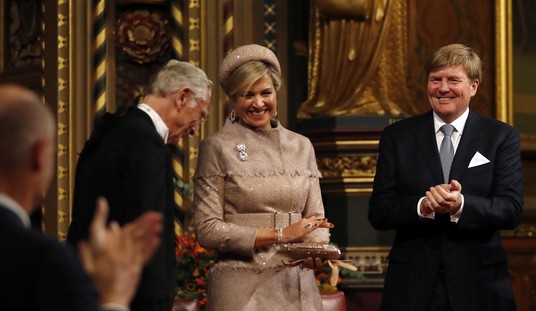Austen Fletcher isn’t actually asking the questions in this clip but a correspondent working for his channel went to Baltimore and asked people what they thought about their city and the things President Trump and others have been saying about it.
I don’t know how many people they spoke to before putting together this clip but clearly there are more than a couple of Baltimore residents who are all too aware of the dangers and problems the city faces. If there’s a common theme here, it’s that people living in West Baltimore don’t feel good about living in West Baltimore.
“Times has just changed over the years,” one woman with a gun on her hip said. She added, “East Baltimore used to be the place where we wouldn’t go, now it’s west Baltimore, but I live there, unfortunately.”
“You can’t go home without feeling like a target or you don’t know if somebody’s going to run into your house. You’re at work, you can be shot. You can go to church, the movies…you just scared to walk anywhere,” she said. A bit later she sums it up: “Baltimore city is definitely murderland.”
A store owner talking from behind bullet-proof glass says he’s seen someone walk out of his store and immediately have a gun put to their head by a robber.
A reporter asked another man about President Trump saying “no human being would want to live there” in reference to Baltimore. He responded, “That’s true. I moved. I moved out of there.”
Midway through the clip, there’s video of Al Sharpton’s appearance in the city to make hay over Trump’s comments. Clearly Sharpton has his supporters as well and I’m sure plenty of them would have negative things to say about the president, but this clip shows that the feeling isn’t universal.
Finally, the clip winds up with some video of the cleanup effort put together by Trump supporter Scott Pressler.
One of the things I consistently like about Austen Fletcher’s clips (including this one even though he’s only present in spirit) is that he genuinely seems interested in finding common ground with people. That’s true when he visits college campuses or pride parades or here when he sends a correspondent to Baltimore. He’s not there to shock and dismay the libs, he’s looking for common cause regardless of where people live, how old they are, or what they look like. And most of the time he finds people willing to talk to him just by being honest about who he is and where he’s coming from. It’s a reminder that the bulk of people in the country have a lot in common, even if the media (and social media) doesn’t make it seem that way much of the time. In an age of division by racial and social identity, it’s always good to be reminded that people are individuals. You can never tell what anyone thinks by looking at them, only by talking to them.








Join the conversation as a VIP Member